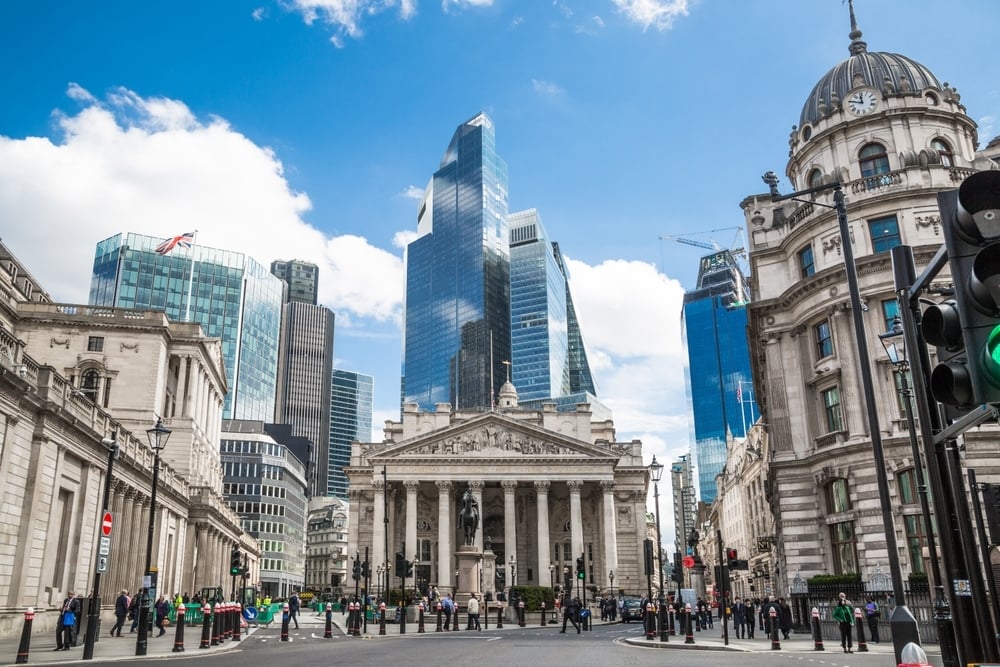Weekly Briefing: Major stock market movements, UK Fintech Investment surge & July housing market and construction sector growth
In this week's briefing we’ll cover a mixed array of stories across both global and domestic headlines, from US recession fears to major stock market movements, a UK venture capital surge reaching nearly £6bn, recent house price increases and construction sector growth.
Global Economies
US Recession Fears and Stock Market Movements
- Fears are growing that the US could enter a recession as the third quarter of 2024 reaches its midpoint. This fear is mainly caused by the number of jobs created in July falling well below Wall Street forecasts, coupled with unemployment rising to 4.3%, the highest rate since October 2021.
- As a result, Global stocks plunged over the weekend amid fears that the US economy is faltering. On Monday, all three major US stock indexes were down significantly, the Dow Jones Industrial Average fell more than 1,000 points, while the S&P 500 and the Nasdaq were both down more than 3%, marking the S&P 500’s biggest one-day drop since September 2022.
- These dips came alongside Japan’s Nikkei index, which had its worst day since its “Black Monday” crash of 1987, dropping 12.4%, and as European markets struggled as well.
- Even though many economists projected that the US would avoid a recession after the pandemic-induced economic slump, recent reports have reignited concerns. An example of this is Goldman Sachs, which raised its odds of a recession occurring in the next year from 15% to 25%.
- Analysts at JPMorgan have predicted a 50% probability of a recession, with this scenario likely prompting the US Federal Reserve to cut interest rates by 50 basis points in September and again in November.
- Despite these fears, some economists believe the foundational strengths of the US economy remain intact. Matt Colyar, an economist at Moody’s Analytics, noted, “There’s certainly some slowing going on, but the foundational things that made us relatively encouraged about the US economy — those things haven’t changed."
UK Investment
Investment Surge in UK Fintech Sector
- Investment in the UK’s fintech sector almost tripled in the first half of 2024, reaching over £5.7bn, up from £2bn during the same period in 2023, according to KPMG data.
- The UK outperformed the wider EMEA region (Europe, the Middle East and Africa), which saw a drop in investment to £9bn over the same period. British fintechs attracted more funding than their counterparts in the rest of EMEA combined.
- Notable deals include a debt and equity round for Abound that could extend up to £800m, and Monzo raising $610m (£490m).
- Although deal sizes have surged, dealmaking volumes struggled, with 198 UK M&A, private equity, and venture capital fintech deals completed in the first half, down from 284 a year prior.
- Hannah Dobson, UK head of fintech at KPMG, expressed hope that fintech deal numbers would show signs of increasing in the latter part of the year and early 2025 with the new UK government and potential interest rate cuts.
- Karim Haji, KPMG’s UK and global head of financial services, noted that a growing proportion of investors seem to be focusing on improving existing companies rather than acquiring new ones.
UK Property
UK House Price Increases
- Nationwide’s house price index indicated a 0.3% increase in house prices since June, although prices remained around 2.8% below the all-time highs recorded in summer 2022.
- The average cost of a home in July was £266,334, with homes approximately £270 more expensive than in June, not seasonally adjusted. Despite this, market activity remained steady, with around 60,000 buyer mortgage approvals per month.
- Michelle Stevens from finder.com said, ”If the Bank of England follows through with expectations and lowers the base rate in the next couple of months, I’m confident that house prices will continue to see growth in the second half of this year.”
- ”We recently polled a panel of experts, and 70% believe that house prices will rise by up to 2.5% by the end of this year”, he also said.
- Marc von Grundherr from Benham and Reeves indicated high buyer confidence despite current interest rates, advising potential buyers to act now as demand is likely to increase when rates are cut.
- Chris Baguley, from Togethermoney, said “There will still be some who prefer to remain cautious in the short-term and wait for the outcome of the Autumn Budget first”.
UK Construction Sector Growth
- The UK construction sector experienced its fastest pace of activity in over two years, with the purchasing manager's index (PMI) rising to 55.3 in July from 52.2 in June, according to S&P.
- This marks the fifth consecutive month of expansion and the quickest rate of growth since May 2022. All three subdivisions—housing, civil engineering, and commercial activity—reported increased activity.
- Civil engineering saw the fastest rate of expansion, reaching its highest level in nearly two and a half years. Commercial activity also saw significant acceleration.
- S&P said its purchasing managers’ index (PMI) – a seasonally adjusted measure of activity in construction – rose from 52.2 in June to 55.3 in July, its highest level since May 2022.
- “The election-related slowdown in growth seen in June proved to be temporary, with the pace of expansion roaring ahead in July. Firms saw the strongest increases in new orders and activity since 2022 as paused projects were released amid reports of improved customer confidence,” said Andrew Harker, the economics director at S&P Global Market Intelligence.
- Andrew Harker from S&P Global Market Intelligence noted the strong increases in new orders and activity, with employment levels rising for the third consecutive month, reaching their highest level in a year.
- Supporting this positive outlook is the rise in lenders offering development finance, indicating a growing demand in the sector. This increase in lenders creates more competitive loan options for developers, facilitating easier access to funding for new projects.
- Overall, it seems there is optimism for the housing market’s future, with anticipated lower interest rates and political backing being the driving factors.
Final Note
Reflecting on this week's briefing reveals a mixed economic landscape.
US stock markets are proving volatile amid recession fears and rising unemployment, meanwhile, UK fintech investments surged to nearly £6bn, confidently leading the EMEA region.
Away from economic and investment headlines, it is encouraging to see the housing market is showing resilience with steady price increases and activity, at the same time the construction sector is experiencing its fastest growth in over two years - a real win for bricks and mortar.
Overall, these developments show signs of strength and resilience throughout the British economy.
At GCV, we remain committed to providing the latest insights into the investment and wider economic landscape in order to support investors in making well-informed decisions when choosing where to allocate their capital.
If you would like to find out more about a number of tax-efficient investment strategies available to UK investors, discover our range of downloadable resources here.
%20(3)%20(2).jpg)









